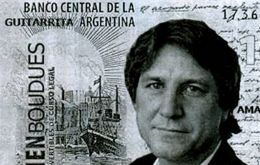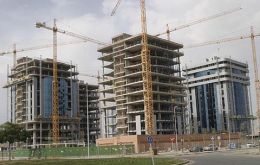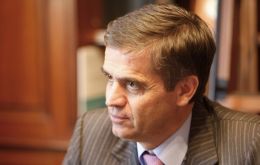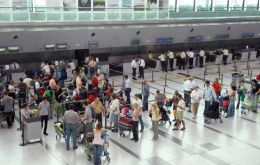MercoPress. South Atlantic News Agency
Stories for June 9th 2012
-
Saturday, June 9th 2012 - 05:13 UTC
Middle class Argentines protest with pots and pans against corruption, crime, inflation and the dollar clamp

For the third night in ten days angry Argentines took to the streets of Buenos Aires and other major cities banging pots and pans to protest corruption, rampant crime and insecurity, inflation and the dollar clamp in the midst of an economy that is showing clear signals of exhaustion and growing questions on the current course of affairs.
-
Saturday, June 9th 2012 - 05:08 UTC
Spain expected this weekend to ask help from the Euro zone to bail out its banks

Spain is expected to ask the Euro zone for help with recapitalising its banks this weekend, sources in Brussels and Berlin said on Friday, becoming the fourth country to seek assistance since Europe's debt crisis began.
-
Saturday, June 9th 2012 - 05:05 UTC
Argentine industrial activity falls 3% in April, but up 1.1% in first four months

Industrial activity in Argentina dropped 3% in April compared to the same month a year ago, with the first four months closing with 1.1% growth, although with a declining tendency according to the latest data from the Argentine Industrial Union, UIA.
-
Saturday, June 9th 2012 - 03:31 UTC
Hollande could manage a narrow manageable majority in Sunday’s election

The latest opinion polls released ahead of France's parliamentary election on Sunday suggest President Francois Hollande will win a narrow but workable majority that depends on Green allies and hard leftists.
-
Saturday, June 9th 2012 - 02:46 UTC
Chile’s May inflation on target but government fears external risks

Chile's consumer price index remained unchanged in May, the government statistics agency INE said on Friday, slowing its pace from April as lower food and transport prices offset higher electricity costs. Prices rose 0.1% in April, the INE said last month.
-
Saturday, June 9th 2012 - 02:41 UTC
FAO food price index fell by 4% in May on prospects of good cereal production

United Nation’s Food and Agriculture Organization (FAO) said global food prices dropped sharply in May due to generally favourable supplies, growing global economic uncertainties and a strengthening of the US dollar.
-
Saturday, June 9th 2012 - 00:37 UTC
Argentina rapidly becoming too expensive for foreign tourists

Argentina is rapidly becoming an expensive country for tourists and evidence of this is the declining number of tourists arriving in the country in the first months of the year while the number of Argentine travelling overseas is soaring, according to Mario Lielman, chair of the Buenos Aires Tourism and Travel Agencies Association.
